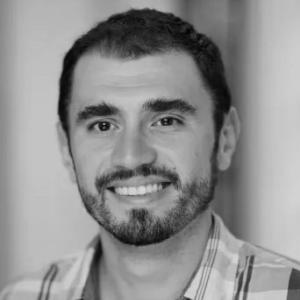Profile
For the past 20 years, Diogo has applied behavioral science tools to design and evaluate behavior change interventions that support biodiversity conservation. His work spans Latin America, South and Southeast Asia, and West and Central Africa, covering a diverse range of topics, including illegal wildlife trade, human-wildlife conflict, overfishing, and invasive species management.
He is the Chair of the IUCN Behaviour Change Science Taskforce, a co-founder and board member of the European Social Marketing Association, and a National Geographic Explorer. From 2018 to 2022, he served as Vice-President of the International Social Marketing Association, and prior to that, he was the co-founder and Chair of the Conservation Marketing Working Group of the Society for Conservation Biology.
His contributions to the field have been widely recognized. In 2017, he received the Early Career Conservationist Award from the Society for Conservation Biology, and in 2016, he was honored with the Young Professional Award by the IUCN Commission on Education & Communication.
Research interests
Diogo's research focuses on the intersection of behavioral science, social marketing, and biodiversity conservation, exploring how human decision-making influences environmental outcomes. His work examines the psychological, social, and economic drivers of behaviors related to wildlife trade, natural resource use, and conservation policy compliance. He is particularly interested in the design and evaluation of behavior change interventions, applying approaches such as social marketing, nudging, and community engagement to promote sustainable behaviors.
Diogo also has a strong interest in understanding the impact of different media formats on pro-environmental behavior. He has worked extensively on assessing the influence of digital games, nature documentaries, and photography in shaping conservation attitudes and actions. His research integrates innovative methodologies, including AI-driven media monitoring, culturomics, and impact evaluation techniques such as process tracing and synthetic controls. Through interdisciplinary collaboration, he aims to bridge the gap between conservation science and practice, ensuring that interventions are both evidence-based and scalable for real-world application.
Beyond his professional work, Diogo enjoys traveling and learning about different cultures, particularly in regions where he has conducted conservation research. He has a keen interest in history, particularly how human societies have interacted with wildlife over time. When not working, he enjoys spending time outdoors with his family, exploring new hiking trails, and introducing his son to the natural world.
Current projects include:
Designing and evaluating a behavioral intervention to reduce pangolin consumption in Zambia, in partnership with Wildlife Crime Prevention.
Designing and evaluating a behavioral intervention to reduce seabird bycatch, in partnership with BirdLife International.
Understanding the impact of the documentary Tigre Gente, in partnership with Wanderlust Productions.
Using behavioral science to increase the adoption of synthetic leopard furs, as substitue to real furs, in Southern Africa, in collaboration with Panthera.
Evaluating the impact of the Tide Turners program on plastic use in India, in partnership with UNEP and ATREE.

